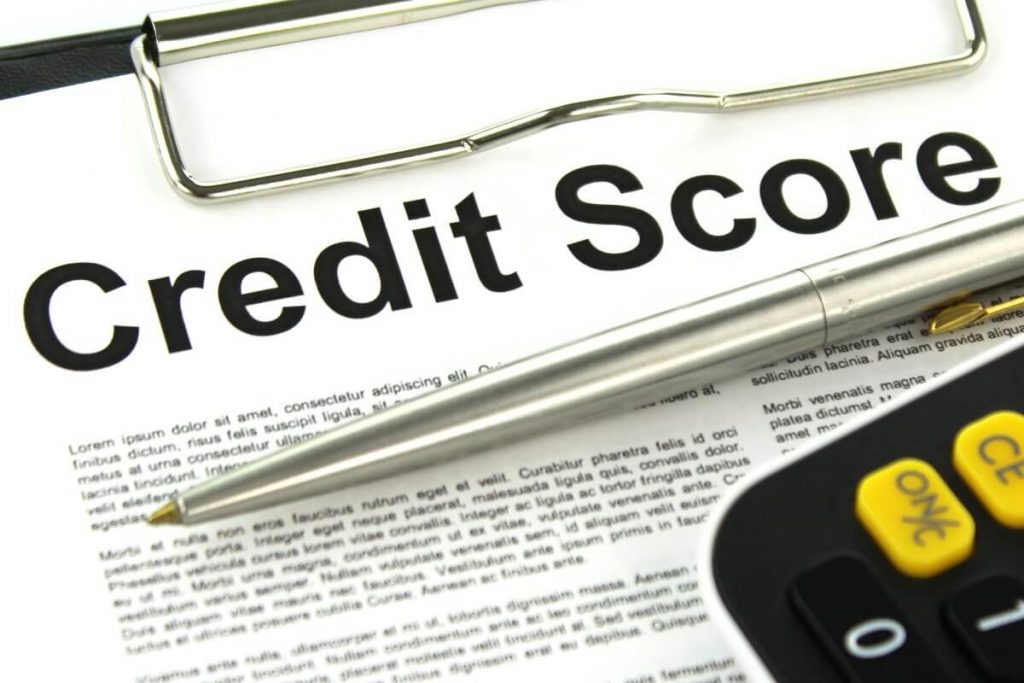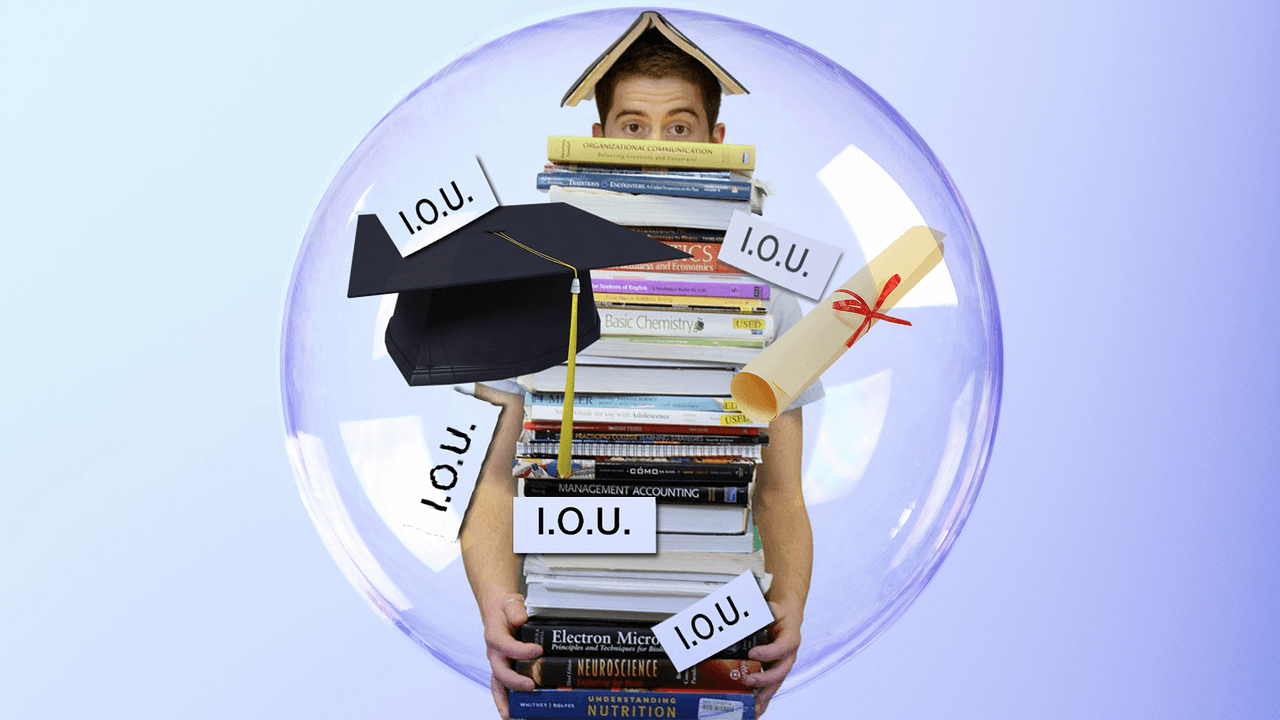Student-centric advice and objective recommendations
Higher education has never been more confusing or expensive. Our goal is to help you navigate the very big decisions related to higher ed with objective information and expert advice. Each piece of content on the site is original, based on extensive research, and reviewed by multiple editors, including a subject matter expert. This ensures that all of our content is up-to-date, useful, accurate, and thorough.
Our reviews and recommendations are based on extensive research, testing, and feedback. We may receive commission from links on our website, but that doesn’t affect our editors’ opinions. Our marketing partners don’t review, approve or endorse our editorial content. It’s accurate to the best of our knowledge when posted. You can find a complete list of our partners here.
How Do Student Loans Affect Credit?
 By
Kayla Korzekwinski
By
Kayla Korzekwinski 
Kayla Korzekwinski is a Scholarships360 content writer. She earned her BA from the University of North Carolina at Chapel Hill, where she studied Advertising/PR, Rhetorical Communication, and Anthropology. Kayla has worked on communications for non-profits and student organizations. She loves to write and come up with new ways to express ideas.
Full BioLearn about our editorial policies

Maria Geiger is Director of Content at Scholarships360. She is a former online educational technology instructor and adjunct writing instructor. In addition to education reform, Maria’s interests include viewpoint diversity, blended/flipped learning, digital communication, and integrating media/web tools into the curriculum to better facilitate student engagement. Maria earned both a B.A. and an M.A. in English Literature from Monmouth University, an M. Ed. in Education from Monmouth University, and a Virtual Online Teaching Certificate (VOLT) from the University of Pennsylvania.
Full BioLearn about our editorial policies

Student loans affect credit in both positive and negative ways. Consistently making payments on student loans can build a good credit history, and just having student loans contributes to your credit mix. Student loans can have a negative effect if payments are made late or not at all. Continue reading to learn more about how student loans can help or hurt your credit score.
Positive impacts of student loans on credit
Student loans can have a positive impact on your credit score if you pay them in full and on time. In fact, paying off your student loans is one of the best things you can do for your credit. This is especially true if you’re a new borrower or if you don’t have other forms of credit.
Payment and credit history
Payment history makes up 35% of the FICO credit score. This score refers to how consistently you’ve made payments throughout the course of your credit history. Paying your bills on time results in a good payment history.
Student loans in particular can have an extra positive impact on your credit history because of the long repayment periods. Credit history makes up 15% of the FICO credit score. It refers to how long you’ve been paying your credit. Student loans are a great way to start building a long credit history from a young age.
Credit mix
Credit mix makes up 10% of the FICO credit score. It refers to the different types of credit you have. This includes student loans, credit card bills, and car payments, to name a few. Student loans are a way of diversifying your credit mix. Student loans also are good for your credit mix because they are installment debt. This means debt that starts high and eventually goes to zero. This is in contrast to credit card debt, which is revolving debt: debt that starts at zero and grows larger.
Though credit mix makes up a smaller percentage of the FICO credit score, it can have a larger impact if your credit and payment history aren’t as good.
Negative impacts of student loans on credit
Missed payments and entering default on your student loans can have a negative effect on your credit score. Be sure to stay on top of your payments or seek help before falling behind in order to save your credit score.
Payment history
Just as student loans can positively impact your payment history, they can negatively impact it. The negative effects are much more severe, too. If you miss student loan payments, it can stay on your credit record for up to 7 years. A single missed loan payment can also drop your credit score up to 100 points.
Enrolling in an income-driven repayment plan can lower your monthly payments and help you avoid missing them.
Default
Default happens on federal student loans when a payment is 270 days late. Private loans usually have a shorter default time of 120 days. The entire balance of the loan becomes due upon entering default, this is called acceleration.
Defaulted loans represent lost revenue to lenders. It can hurt your ability to apply for loans or credit in the future. It can take years to recover your credit score. Defaults stay on your credit record for 7 years.
Avoid entering default by enrolling in an income-driven repayment plan or applying for deferment or forbearance.
Other effects of student loans on credit
Oddly enough, paying off a student loan in full can cause a slight decrease in your credit score. This is because of the credit mix. When you complete payments on a student loan, it’s removed from your credit mix. You’ll see a decrease in your credit score if you don’t have many other types of credit, or if you have mostly revolving debt. However, the dip will only be small, and it will be easy to bounce back from. Don’t let this stop you from paying off your loan in full!
If a parent took out a PLUS loan on behalf of a student, their credit score will be affected in the same ways. A parent can transfer the responsibility of payment to the student by refinancing.
Why it matters
It’s important to stay on top of your student loan payments and maintain good credit. It shows that you’re a responsible borrower. Your credit score determines your eligibility to receive other loans, sign up for a credit card, get a mortgage, lease a car, and even lease a cellphone.
Eligibility for refinancing student loans is also based on credit score. If you are hoping to refinance to receive a lower interest rate, be sure that you have a good credit score. If not, you’ll have to find a cosigner with good credit.
As long as your student loans are kept in good standing, they will have a positive effect on your credit score. If you fear you may fall behind on payments or enter default, take action as soon as possible to save your credit score.
See also: How long does it take to build credit?
Frequently asked questions about how student loans affect credit
Can you build credit by paying off student loans?
Why did my credit score drop after paying off debt?
Do student loans affect buying a house?





